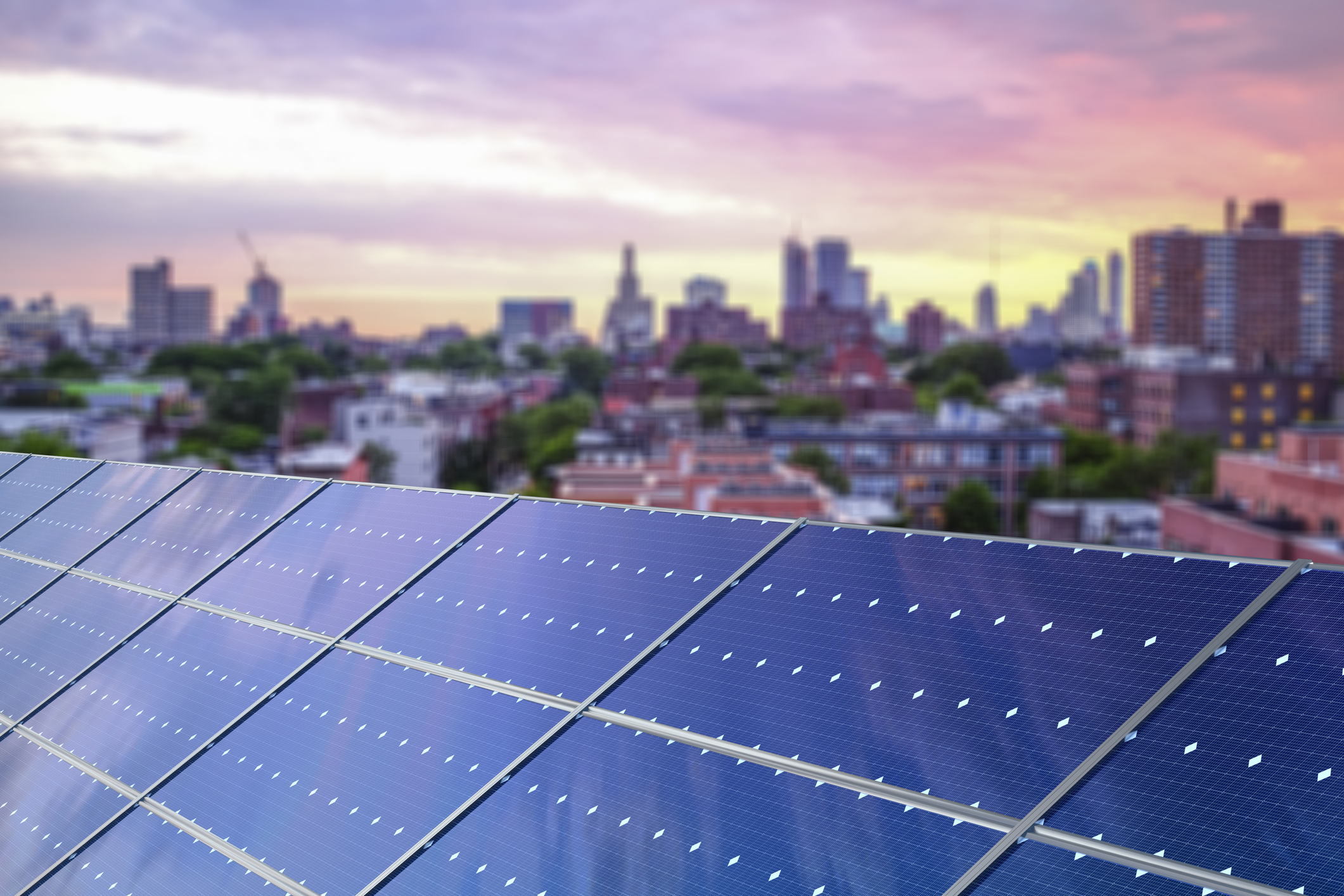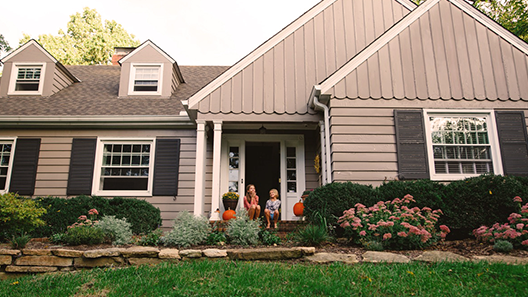Considering Solar Panels for Your Home? Here’s What You Need to Know
“Even after all this time the sun never says to the earth, 'You owe me.' Look what happens with a love like that. It lights the whole sky.” - Hafiz
Perhaps when the great Persian mystic poet Hafiz penned those words, he envisioned the sun one day providing even more comfort for those under its life-sustaining rays. He would likely not be surprised that today the sun powers solar panels that crown rooftops, illuminate roadside signs, and even power spacecraft.
If you’re experiencing rising electricity costs and would like to use green energy, you may want to consider looking into going solar. Solar panels generate their own power and can help offset or even eliminate your energy bill. Many homeowners also qualify for credits on their electric bill if solar panels produce more energy than they consume.
An important question to try and answer is if you’d save more on your energy bill than you’d spend on upfront installation costs. Let’s take a closer look at a few important things to know about going solar to help you with your decision.

How Do Solar Panels Work?
Solar panels capture photons from sunlight and convert them into energy by generating “direct current.” Although solar panels can vary in efficiency, it’s the solar reflection rate that determines the number of solar rays reflected by the solar panels. High-efficiency panels maximize output, allowing a home to achieve a large amount of solar-produced electricity with a small installation. Even with the focus on solar absorption, efficient solar panels can reflect around 30% of light.
Most solar panel installations do not lay flat on the roof, but instead, attach to guide rails elevated from the surface. These guide rails allow the weight of the solar panels to be distributed across structural beams as opposed to the roofing material. In addition to making installing heavy solar panels easier, they also create a gap between the solar panel and your roof.
Not only do solar panels offer energy to offset the cost of cooling in the summer, but they also help keep your attic and home cooler. They do this by absorbing then reflecting thermal energy from the sun thereby keeping excessive heat from entering your home.
How Much Do Solar Panels Cost?
The biggest expense with solar panels is the initial purchase and the installation of the panels although other factors will also determine the final price. These include size, component options, labor costs, local permitting costs as well as any available incentives and tax credits.
According to the Center for Sustainable Energy (CSE), the cost of a solar electric system is measured in dollars per watt. Their website lists the current average cost for a residential system at $3-5 per watt. If you install the average 250-watt solar panel, you’ll need approximately 32 solar panels to generate enough energy to power your entire home. Prior to tax credits or incentives, the average 5-kW residential system will cost $15,000-$25,000. As for how long solar panels will last, GreenBiz estimates that the industry-standard life span is about 25 to 30 years.
Incentives, Rebates and Tax Credits
The CSE also notes that homeowners must have the tax liability to utilize the credit, however, a portion of the credit may be carried forward if not completely usable in the installation tax year. Additionally, there may also be local solar rebates or incentives available because the government offers homeowners significant incentives for installing solar panels as an alternate energy source.
In December 2020, Congress passed an extension of the ITC, which provides a 26% tax credit for systems installed in 2020-2022, and 22% for systems installed in 2023. (Systems installed before December 31, 2019, were eligible for a 30% tax credit.) The tax credit expires starting in 2024 unless Congress renews it. You may be eligible for this tax credit if you meet the criteria outlined at Energy.gov.
Regarding a rebate from the electric utility to install solar the website also states, “under most circumstances, subsidies provided by your utility to you to install a solar PV system are excluded from income taxes through an exemption in federal law. When this is the case, the utility rebate for installing solar is subtracted from your system costs before you calculate your tax credit.”
For more information on incentives and policies that support solar energy in your local area, visit the Database of State Incentives for Renewables and Efficiency.
Types of Solar Panels
There are a few different types of solar panels. Although they work similarly, there are some distinct differences. Below are the most widely used types of panels and systems.
Monocrystalline
These panels have been around since the early days of solar and remain reliable. Monocrystalline installations are efficient and have a good lifespan. Additionally, they generally remain the highest-priced system.
Polycrystalline
Polycrystalline consists of a newer design that consists of several silicon crystals. This type of panel is slightly less efficient than monocrystalline; however, they are also less expensive. The lower efficiency of these panels means will likely result in the need to have additional panels to achieve the same amount of energy.
Amorphous
Amorphous solar panels utilize thin sheets of silicon that are typically attached to metal, glass, or plastic. These panels are not the most efficient, however, were known for their affordability. As the price of the other types of solar panels has slowly come down, the lower efficiency of amorphous solar panels has reduced its popularity for home-usage.
On or off the Grid?
There are also a few different ways that you can configure your solar panel system. Normally, the easiest way to configure your solar panels is with a grid-tied system. In this scenario, your solar panels are connected directly to your utility company’s power grid.
Typically, a grid-tied system uses “net metering.” As the name suggests you’ll just be charged for the net amount of electricity used.
The other option is to use an off-grid system where a battery bank is installed to store your solar energy. These systems are most often used in scenarios where it’s not possible to connect to a utility power grid, however, having a battery backup system can help ensure that you have a backup plan in the event of energy disruption.
Are Solar Panels Worth It?
For maximum solar efficiency, you need to factor in where you live and if your home gets direct sunlight including a south-facing roof. This will greatly increase solar panel efficiency, as more sun means more energy produced and a greater potential to save money with solar. If you checked most of the boxes above, then you may want to consider looking into making an investment in solar panels for your home.
To help pay for the cost of installation, many homeowners take advantage of the equity in their homes by doing a cash-out refinance. Cash-out refinancing is when you replace your current mortgage with a new one that has a larger outstanding principal balance, and you get the difference. This can result in a lump sum of cash that can be used for your green energy project. Not only will solar panels immediately increase the value of your home, but it’s an investment that is highly likely to pay off over time, particularly if you plan on remaining in your current home for the foreseeable future.
Lowering energy costs is only one of the many benefits of solar energy. Solar panels create clean, renewable power from the sun and benefit the environment by reducing the usage of fossil fuels. This will reduce the number of greenhouse gases and allow for a cleaner and more sustainable planet for future generations.
As Hafiz would agree, it’s “a love like that” that will help ensure that the people of tomorrow can get to enjoy the amazing planet that we thought to preserve for them.



